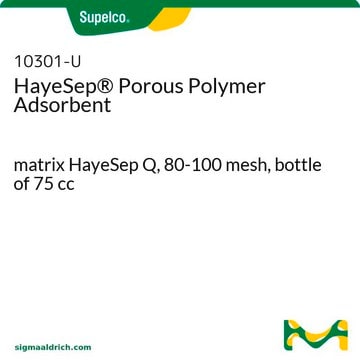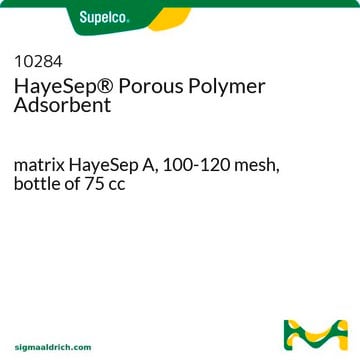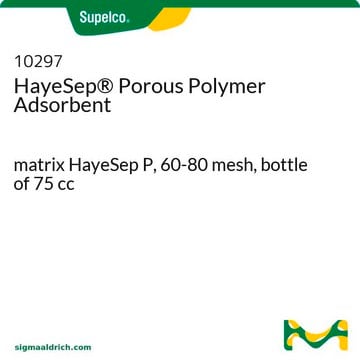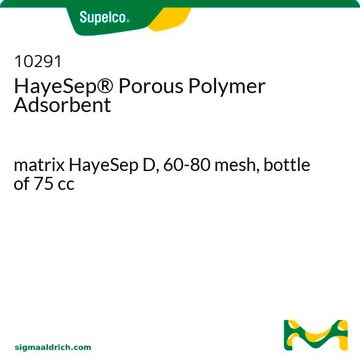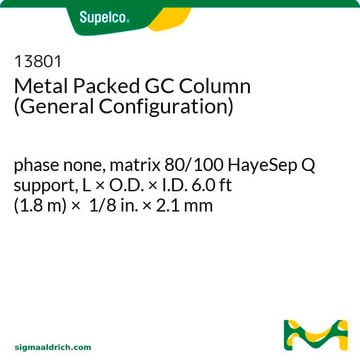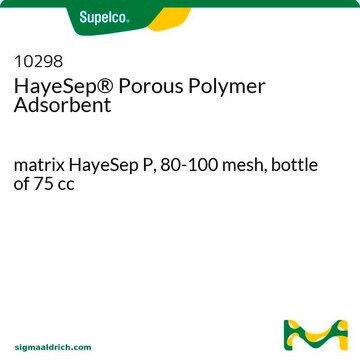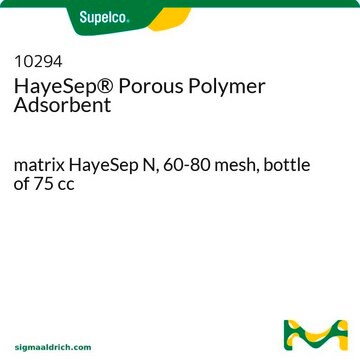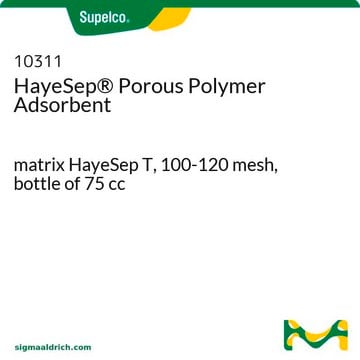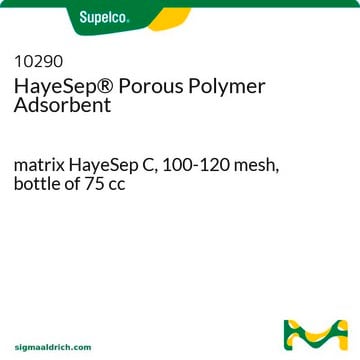10286
HayeSep® Porous Polymer Adsorbent
matrix HayeSep B, 80-100 mesh, bottle of 75 cc
About This Item
Produits recommandés
Forme
solid
Niveau de qualité
Conditionnement
bottle of 75 cc
Fabricant/nom de marque
Hayes Separation Inc
Paramètres
190 °C temp. limit
Technique(s)
gas chromatography (GC): suitable
Superficie
~608 m2/g
Matrice
HayeSep B
Taille des particules
80-100 mesh
Densité
~0.33 g/mL (free fall density)
Vous recherchez des produits similaires ? Visite Guide de comparaison des produits
Description générale
For more information about any of our adsorbents, please visit sigma-aldrich.com/adsorbents
Application
Informations légales
Mention d'avertissement
Warning
Mentions de danger
Conseils de prudence
Classification des risques
Aquatic Chronic 2 - Eye Irrit. 2 - Skin Irrit. 2
Code de la classe de stockage
11 - Combustible Solids
Classe de danger pour l'eau (WGK)
WGK 3
Point d'éclair (°F)
Not applicable
Point d'éclair (°C)
Not applicable
Faites votre choix parmi les versions les plus récentes :
Certificats d'analyse (COA)
Désolés, nous n'avons pas de COA pour ce produit disponible en ligne pour le moment.
Si vous avez besoin d'assistance, veuillez contacter Service Clients
Déjà en possession de ce produit ?
Retrouvez la documentation relative aux produits que vous avez récemment achetés dans la Bibliothèque de documents.
Notre équipe de scientifiques dispose d'une expérience dans tous les secteurs de la recherche, notamment en sciences de la vie, science des matériaux, synthèse chimique, chromatographie, analyse et dans de nombreux autres domaines..
Contacter notre Service technique